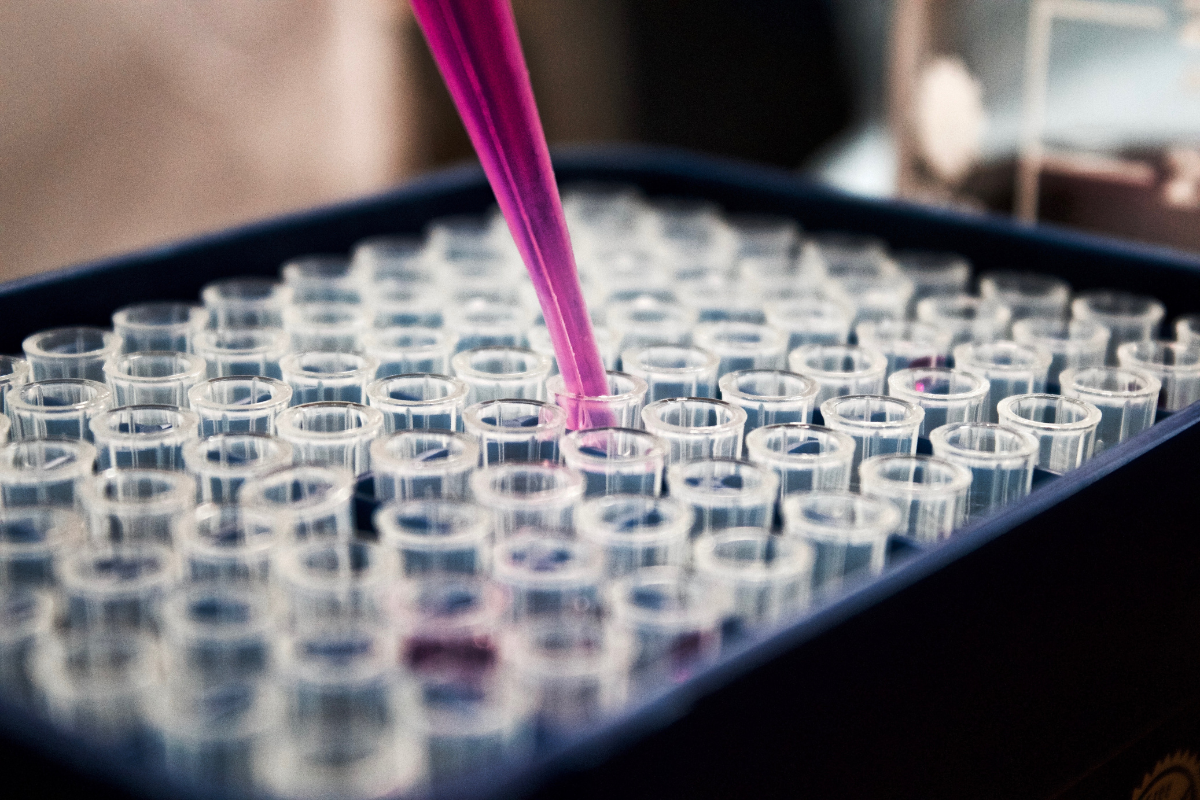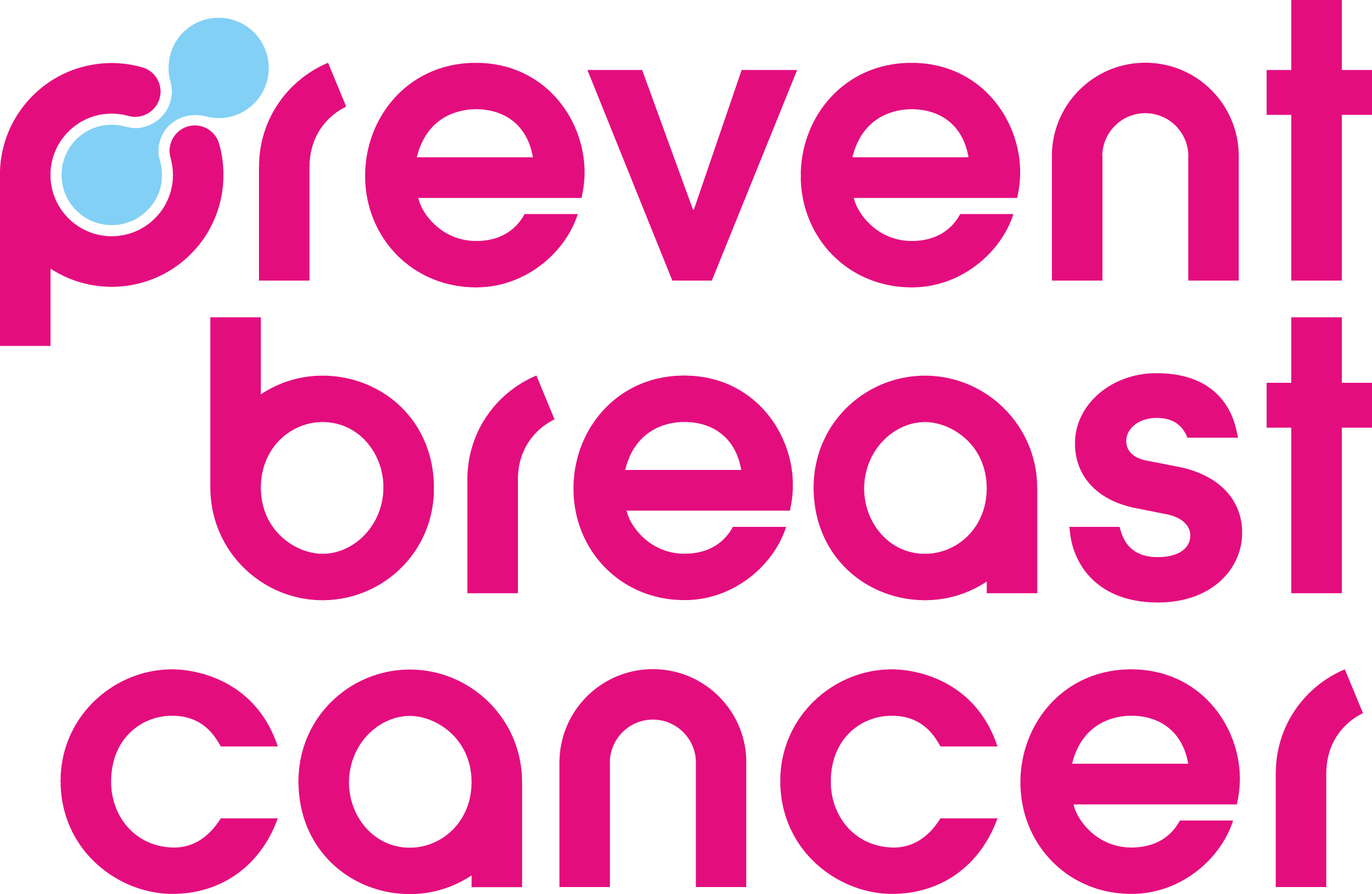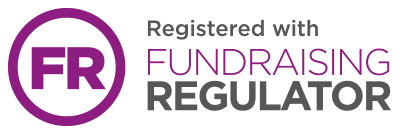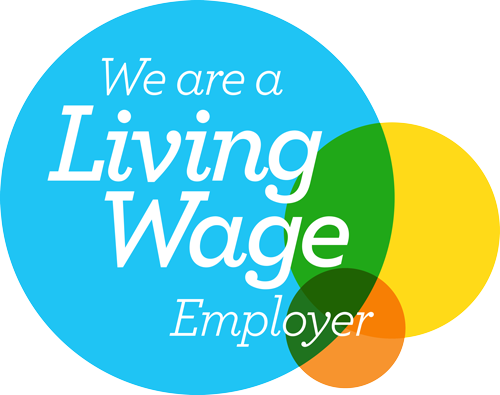Genes and Family History
Genes are sections of your DNA and can be passed from parents to their children. Your genes determine things like your physical features and characteristics but can also affect your breast cancer risk. Read on to find out more about genes and family history.

How do genes affect your breast cancer risk?

There are two different ways that we can look at your genes to understand your breast cancer risk.
The first is to look at genes that help to keep your breast cells healthy, for example you may have heard of genes called BRCA1 and BRCA2. When there is a mutation in these genes, which means that it can’t work as it should do, the breast cells are more likely to develop into cancer cells and the risk of breast cancer is very high. BRCA1 is the gene that the actress Angelina Jolie has a mutation in, and for which she had preventative breast and ovarian surgery.
Women who have BRCA1 and BRCA2 gene mutations have between a 45 per cent and 90 per cent risk of developing breast cancer in their lifetimes. There are now 12 such genes that we can test for mutations in, but thankfully these mutations are not common in the general population and we usually only test those with a strong family history of breast cancer.
The second way that genes can affect your breast cancer risk is through normal variants in the DNA call single nucleotide polymorphisms (SNPs). A variant means a single point change in the DNA that can be seen very commonly in the population. Each variant only very slightly increases or decreases the risk of breast cancer but we now know of over 300 of these variants that are associated with breast cancer risk. Someone who has inherited many more of the risk increasing variants will, overall, have an increased risk in breast cancer. More information on genetic testing for mutations and SNPs is given below.
What do we mean by genes and family history?
In its simplest term family history means having another blood relative who has previously been diagnosed with breast cancer or one of the other cancers that can be associated with breast cancer genes such as ovarian, pancreatic and prostate cancers. The strength of a family history is judged in three main ways:
- How close to you a relative with breast cancer is. A first degree family history means your closest relatives such as your mother, sister or daughter. A second degree family history includes your aunts, grandmothers and nieces and a third degree family history includes cousins, great grand parents etc. In general the closer the relatives are the greater the breast cancer risk to other family members.
- The number of relatives with breast cancer. The more relatives with breast cancer the greater the risk of breast cancer to others in the family.
- The ages at which breast cancers occurred in the family. In general the younger someone is affected by breast cancer the more risk to other members of the family. When several women in a family are affected with breast cancers at young ages the chance of a mutation in one of the high risk cancers such as BRCA1 is also higher.
So overall, we look at the numbers of women in the family with breast cancer, how closely related they are to you and their ages and then decide what your risk of breast cancer is. Many will not have an increased risk of breast cancer because the relatives are not too close or the cancers developed when they were much older.
Visit the National Institute of Health and Care Excellence (NICE) website to read the steps you can take to explore your family history of breast cancer.
What percentage of breast cancers are caused by inherited genes?
As a result of gene research, carried out by labs around the world including by Prevent Breast Cancer, it looks like many more breast cancers than we had at first thought are indeed caused by inherited genetics. The current estimate looks like this:
- 8%* of breast cancers are caused by an inherited single faulty genes such as BRCA1, BRCA2, ATM, CHEK2, PALB2, PTEN, TP53, CDH1, STK11, BARD1, RAD51C, RAD51D.
- 12%* of breast cancers are caused by the cumulative effect of small altered gene variants, known as SNPs
- 5%* of breast cancers seem to have an inherited component that we have not yet been able to identify through current gene testing
(* these are approximate best estimates)
Thus, 25% of all breast cancer seems to have an inherited component while 75% appears to be caused by non-inherited risk factors. These are what we acquire during our lifetime from our internal and external environment. Often non-inherited risk factors are referred to simply as ‘environmental factors’ but this can be misinterpreted as solely external environmental influences, such as chemicals and pollution, when in fact, our internal environment of hormone balance, diet and lifestyle, also plays a significant role.
This 25/75 split is however not a strict dividing line as there is much crossover between the genetic and the environmental components. For example, the risk of breast cancer in someone carrying an altered or faulty gene can be hugely influenced by changing lifestyle. And the susceptibility of someone to environmental or lifestyle factors may vary from one individual to another because of their genetic makeup. Indeed, it may be that most breast cancers are caused by a combination of the genes you are born with and the environment and lifestyle into which you are born.
This is exactly why Prevent Breast Cancer’s research strategy has coalesced around four main pillars of research:
- Gene Research (faulty genes and small altered gene variants, known as SNPs)
- Screening & Early Detection (breast density, improved techniques)
- Lifestyle & Environmental Risk Factors (diet, lifestyle, hormones, environmental chemicals)
- Preventative Drugs (clinical and lab research using non-animal models)
How common are BRCA1 and BRCA2 genes?
BRCA1 and BRCA2 are the commonest breast cancer genes. Around 1 in 450 of the general population in the UK are carrying a faulty BRCA1 or BRCA2 gene. However, the risk is much higher with the Jewish community as around 1 in 40 women of Ashkenazi Jewish descent will carry a mutation and 1 in 140 Sephardi.
Women who carry a faulty BRCA1 or BRCA2 gene have a high risk of developing breast cancer of between 60% and 80% (depending on exactly which faulty gene is present, as well as small altered gene variants known as SNPs, and other lifestyle factors). In addition, they also have a risk of ovarian cancer of between 25% to 60.
What about men?
Men can get breast cancer too, but it affects only around 370 men in the general population. However, BRCA1 and BRCA2 are inherited equally by men as well as by women, and men are often “silent carriers”. Men who have BRCA1 and BRCA2 have a higher chance of developing breast cancer too: as many as 1 in 10 men carrying BRCA2 and 1 in 50 carrying BRCA1 will develop the disease.
Men with these faulty genes also have a higher chance of developing prostate cancer: around 1 in 3 with BRCA2 and 1 in 10 with BRCA1. Thus, the men in a family tree of a case of inherited BRCA associated breast cancer should also have a test: partly for their own benefit, and partly so that they know whether they could pass it silently on to their daughters and the next generation.
Worried about your family history?
If you’re worried about your family history, first speak to your GP. If they are concerned, they will refer you through to a family history clinic. If you have many members of your family with breast cancer, particularly if they developed at younger ages, there might be a faulty gene running through your family such as BRCA1 and then your family will be referred to a clinical genetics department to see whether you do have a faulty gene, or not.
What are SNPs and how can we use them?
Single Nucleotide Polymorphisms (SNPs) are single point variants in DNA and Prevent Breast Cancer has funded research into identifying which of these variants can increase a person’s chance of getting breast cancer.
Research has shown that about a third of breast cancer that run in families can be attributed to SNPs variations. As discussed above, over 300 genetic variants (SNPs) have been identified, that can increase the risk of breast cancer. These SNPs are far more commonly found than mutations in genes such as BRCA1, making them an important part of the picture for identifying someone’s breast cancer risk.
Other than blood samples, DNA can also be taken from saliva, and this is another area of research previously funded by Prevent Breast Cancer research programmes. We have funded research to look at combined risk assessment in women when they attend for breast screening and have shown that a combination of family history, breast density and genetic analysis, particularly SNPs, makes risk prediction much more accurate. Large scale studies using this approach are underway in America and Europe to evaluate whether we can use this combined approach to determine which women need more, or indeed less, breast screening.
SNPs are not currently available on the NHS. However, the hope is that soon every woman will get their SNPs assessed as part of a comprehensive risk assessment, be provided with an accurate assessment of their lifetime risk of developing breast cancer, and be offered enhanced breast screening and prevention advice.
Genetic testing
If you are advised that you can undergo genetic testing, it will involve a simple blood test. The reason for that is that the geneticists will be looking for what they call your germline DNA. This is the DNA that’s in your whole body and they can get that from the white blood cells in a blood sample. Your sample will then be sent over to a genetics lab and there are several key genes that will be looked at routinely for those who’ve got a strong family history of breast cancer.
Before the blood test, one of the first things that happens is genetic counselling. This is where you’ll be talked to by a trained genetic counsellor about the chances of a mutation and what would happen if indeed you do have a mutation identified.
Additional counselling after the test is also provided if required and you can also then determine who in the family might also want to go through with genetic testing if a mutation was identified.
There are now 12 routinely tested genes: such as BRCA1, BRCA2, PALB2, ATM and CHECK2 (with more added since this video was recorded) and the geneticist will identify if you have a mutation in one of these genes. If a mutation is identified then there is a 50/50 chance that this could be passed on to each of your children.
It is actually quite rare and unusual for people to have a mutation such as this in the general population. However, the more cases of breast (and ovarian) cancer that there are in the family, and particularly the ages at which those cancers occurred, are important. So the younger the age that the cancers occur the more likely there is to be a mutation in these genes.
If you’re found to carry a mutation, and so have an increased risk of breast cancer, you will be eligible for more breast screening; starting at a younger age than the NHS breast screening programme and continuing for longer on an annual basis. This screening may also involve both magnetic resonance imaging (MRI) in addition to mammograms. As the risk of breast cancer is higher, you may also eligible for risk-reducing double mastectomy surgery and risk reducing medications such as tamoxifen.
Please contact your GP if you have any concerns and think you may be eligible for referral to the genetics team for genetic testing.
SNPs testing
Are there any current SNP studies? Currently there are no research studies open for the public to volunteer for. We anticipate that future studies will invite people randomly from various parts of the community, and so it’s not possible to put your name down on a list.
Can I have a private SNP test? It is now possible to purchase a SNP test directly from a commercial company. The test is known as the ANTEGENES test and is available in the UK from www.everythinggeneticltd.co.uk. However, Everything Genetic would only recommend an Antegenes test for anyone unaffected by cancer at that point.
Where does the NHS currently stand regarding a SNP test? At present, SNP testing is not available on the NHS. If you have a private test done, there are unfortunately no NHS pathways in place to help you know what to do with the result. The company itself however may provide you with some guidance. (Prevent Breast Cancer is unfortunately also unable to provide individual clinical advice to you about your result).
There is no doubt that the SNP test will become a valuable tool for the NHS soon – but there is still work to be done to refine it and work out how best and most cost effectively to integrate it into NHS practice. To help us keep funding our ground-breaking and vitally important genetic research, you can donate directly to our research projects.
About Prevent Breast Cancer
Prevent Breast Cancer is the only UK charity entirely dedicated to the prediction and prevention of breast cancer – we’re committed to freeing the world from the disease altogether. Unlike many cancer charities, we’re focused on preventing, rather than curing. Promoting early diagnosis, screening and lifestyle changes, we believe we can stop the problem before it starts. And being situated at the only breast cancer prevention centre in the UK, we’re right at the front-line in the fight against the disease. Join us today and help us create a future free from breast cancer. If you have any questions or concerns, email us today.
on January 21, 2023.
on January 25, 2023.



